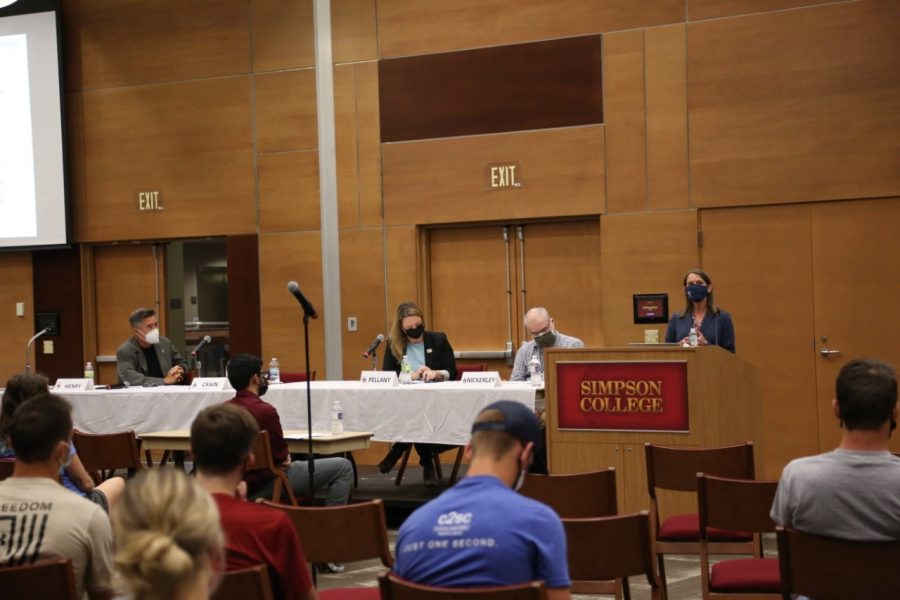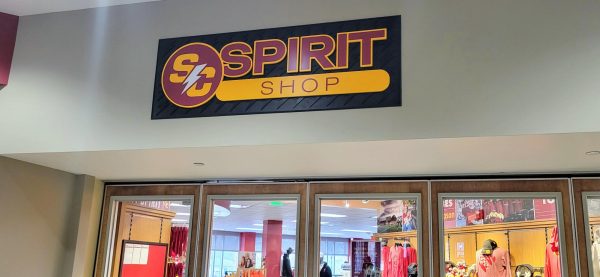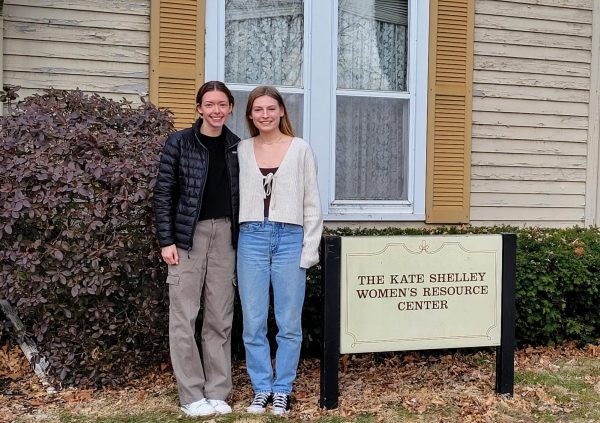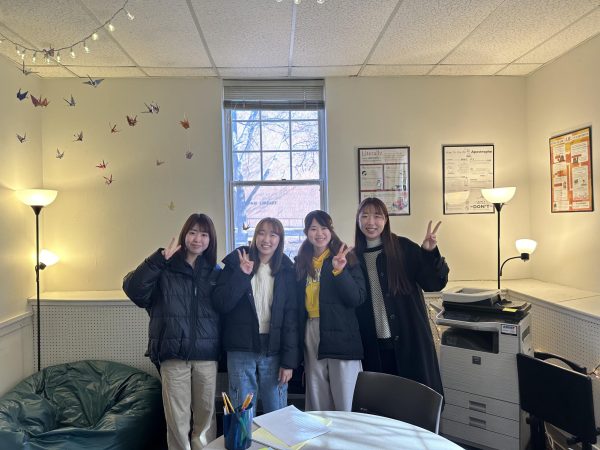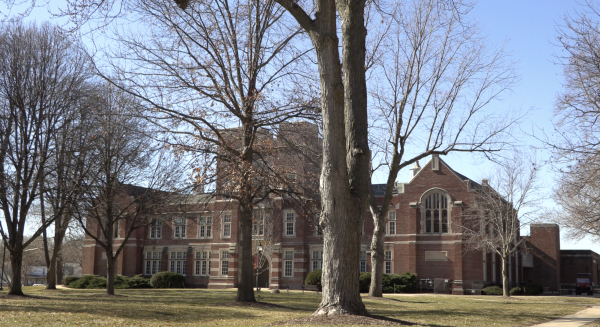The fight for bread and roses: Labor Day past and present
September 15, 2021
Four speakers spoke on Sept. 9 in Hubbell Hall about the progression of the labor movement in Iowa.
The panelists offered historical background on Labor Day and labor movements in the U.S. and Iowa. The panelists also offered perspectives on current issues in labor-management relations and trends in the future of labor organizing in today’s changing economy.
The four speakers were John McKerley, Jen Pellant, Joe Enriquez Henry, and Nicole Crain.
Pellant encouraged the audience to research and help pass the Protecting the Right to Organize Act (PRO) Act.
“The PRO Act is the most significant worker empowerment legislation since the Great Depression,” Pellant stated.
Jen Pellant is the Field Coordinator of the Western Iowa Labor Federation, an Area Labor Federation chartered by the American Federation of Labor and Congress of Industrial Organizations (AFL-CIO), which covers 39 counties in Western Iowa and is affiliated with 35 public and private sector union locals.
Pellant is also a Simpson Graduate and former editor of the Simpsonian. She mentioned six points in labor history that have an impact today.
The PRO Act empowers workers to organize and bargain, ensures workers can reach a first contract quickly, holds corporations accountable for union-busting, creates pathways for workers to form unions without fear and repeals “right to work” laws.
Nicole Crain is a Simpson College alum and the Executive Vice President for the Iowa Association of Business and Industry (ABI).
Crain also provided some tips for Simpson College students when entering the workforce.
“Search and ask about what’s important to you,” Crain said. “Wages and benefits are important, but recent trends show a company’s societal mission and feeling valued as an individual are more important to many employees.”
Crain also encouraged students to use their voices and speak up if they have a problem.
“If you do not have a good work environment, you need to speak up,” Crain said. “Employers want to help, and they want to have an excellent relationship with employees or their labor organization. If they don’t hear about issues, they can’t help.”
The second speaker, Joe Enriquez Henry, is a graduate of Iowa State University. He worked in various capacities, from elected and appointed positions in the International Brotherhood of Teamsters to the League of United Latin American Citizens, ACLU and Forward Latino. Henry was also involved in social justice, where he worked with communities and organizations to bring change for over 40 years.
He organized a special event to raise money for social justice work in 1984. He was also a part of the UPS strike in 1997 and still promotes what he believes in today.
Henry spoke on the history of labor activists, such as Lucy Parsons and Emma Tenayuca. “They had a belief in working people,” he said. “They fought very hard for the movements that happened.”
In 1935, the U.S. passed the National Labor Relations Act, codifying the right of Americans to form unions and bargain collectively. In 1947, the U.S. and Iowa passed the Taft-Harvey act, opening the door to the so-called “Right to Work” legislation. In 1953, the Iowa legislature created the Iowa Public Employee Retirement System. In 1967, the U.S. passed the Age Discrimination in Employment Act. In 1974, Iowa passed the Public Employee Relations Act (PERA), giving public sector workers the right to bargain collectively. And, in 2017, the Iowa legislature gutted PERA Chapter 20, removing the right of public workers to bargain collectively.
John McKerley is the oral historian at the University of Iowa Labor Center, part of the UI’s College of Law. McKerley used his time to inform the audience about Iowa’s history with the labor movement in the 1930s, 1960s and today. He noted examples like the tractor factories, Ruth’s Factory and the coal mines in Buxton, Iowa.
The last few minutes of the program were reserved for questions, although there was only time for three to be asked.
This event was sponsored by the John C. Culver Public Policy Center and the Iowa History Center and the Department of Business Administration and Economics co-sponsored.
** Story was updated Sept. 16 to reflect that Nicole Crain is in favor of right-to-work laws and unions.



